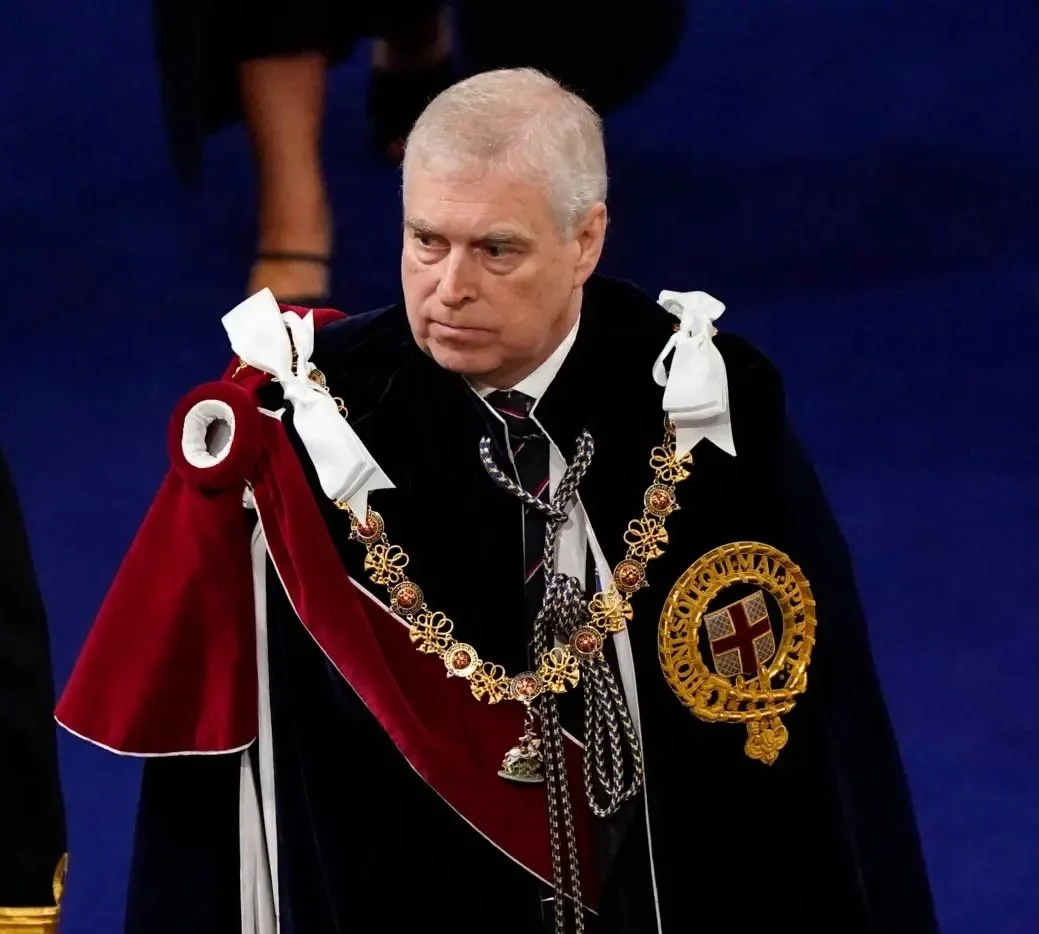Names and Titles
Andrew Mountbatten Windsor - former Knight of the Garter
What is in a name?
We all have a name. We have a surname from our parents or perhaps our spouse, and first names chosen for us when we were born. Some people change their names, for business purposes or to escape their past. But most of us keep our name through most of our adult lives.
We may also gain titles, either by our own efforts or as a prize for our achievements. We may choose whether or not we use our titles but we always have our names.
Names and titles tell different stories; names indicate who we are, but titles possibly indicate the things we value. Titles can express achievement, tradition, or identity. A title may become a burden – many Doctors hide their title at social events to avoid unwanted consultations. Some titles are symbols of a past which may be unearned and increasingly irrelevant.
Whether we inherit a title, earn it through study, or are given it as a reward, it carries an echo of social history and personal meaning which will linger, even after its practical use has ceased. Academic and Military titles, like Medical titles, often continue to be used long after retirement.
Naming your titles
In recent weeks the former Prince Andrew announced that he would retreat from using his royal titles. He did not initially give up these honours but said he would not use them in public.
This created a subtle paradox: he was a Prince by birth, and had was made Duke of York, Earl of Inverness and Baron Killyleagh by the late Queen on the day he married. He was a Knight of the Garter and Knight Grand Cross of the Victorian Order. Initially he retained his titles but they were socially erased. If he had valued these titles for what they meant to him personally, giving up their use in public was not much of a punishment.
Yesterday it was announced that the Andrew formerly known as Prince would henceforth be known as Andrew Mountbatten Windsor, ironically his name at birth. He will lose all his titles and his residence in Windsor.
This dichotomy between the public use of titles and their significance to the holder of them raises the question of whether the value of titles is appreciated by their external acknowledgment, or does the holder value them for their internal significance alone? Will Andrew take his ceremonial robes with him to Sandringham, as a reminder of how he used to be perceived?
Doctors and Misters - a historical view
Medicine is framed by custom and evolution. Historically, physicians and surgeons occupied very different social worlds. Physicians were university-trained scholars, versed in the theoretical arts of diagnosis and medicine. They received a diploma which entitled them to the title ‘Dr’.
Surgeons, by contrast, were craftsmen; they were barber-surgeons who served an apprenticeship and although they learned to operate with skill and precision, they had no academic standing. They were prevented from identifying themselves as ‘Dr’ despite their training and expertise.
Over time, as surgery grew more rigorous and distinguished, and as Surgeons started to award academic qualifications, the old hierarchy blurred. Nevertheless, the old differences remained as a vestige of that past. Physicians retained the title ‘Dr,’ while surgeons, upon earning Fellowship of the Royal College of Surgeons (FRCS), set it aside in favour of ‘Mr’ or ‘Ms.’ What began as a sign of lesser status now implied mastery, and this pattern continues to this day. It is a quiet inversion of honour, and proof that recognition need not always shout its name.
For a Gynaecologist with MRCOG rather than FRCS this always left me in a quandary; I was happy to be ‘Dr’ but was persuaded to be ‘Mr’ for part of my Consultant career. My father passed away before I qualified but he would have been so proud, and I feel that I should be proud for him. So I continue to use the title ‘Dr’ even in areas of my life where it is unnecessary and irrelevant. It is on my driving license, bank account and virtually everything that identifies me. My friends who own an excellent Indian restaurant (Azeems in Keighley) invariably refer to me as ‘Dr Peter’. It is simultaneously nice and embarrassing. I have gone back to the title I feel more comfortable with. So ‘Dr’ it is.
There is something deeply human in this dance between keeping and hiding our titles. For some, a name like ‘Doctor’ or ‘Prince’ carries affirmation. It may be the outward sign of hard work, identity, or simply lineage. For others, the act of stepping away from a title represents freedom from expectation. Each choice tells a story about power, pride, and belonging.
What do titles mean to us?
Perhaps the true worth of any title lies not in how loudly it is spoken, but in the quiet conviction with which it is owned—or relinquished. In the end, it may be less about what others call us, and more about who we believe ourselves to be.
If you are a healthcare professional, however lightly or heavily you hold your title, the stresses of heavy work loads, patient demands, poor staffing and lack of appreciation may be affecting your belief in yourself and silencing your title’s value. Losing belief in your title will affect your personal wellbeing and if this is your story then speaking to an Executive Coach will help you rediscover who you are.
If you would like to explore this further please book a free no obligation 30 minute on-line conversation with me here. If I am not the right Coach for you, I will recommend somebody else who might be.
Please check my website and sign up to my mailing list if you want to receive more posts like this directly to your inbox.
